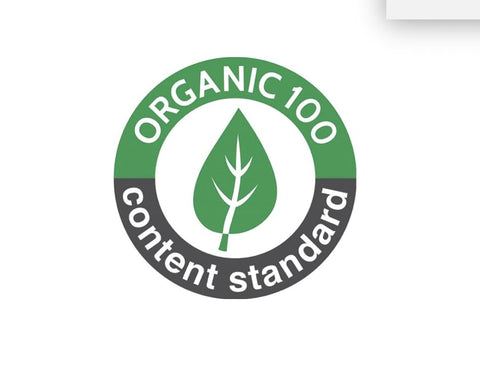

Organic Content Standard 100 (OCS 100)
The Organic Content Standard 100 (OCS 100) and the Organic Content Standard blended (OCS blended) enable companies to record the proportion of organic material in textiles and pursue the goal of increasing production in organic farming.
Another goal is to prevent greenwashing by requiring certification of all goods along the entire value chain.
Pay attention to the distinction between OCS 100 (95-100% natural fiber content) and OCS blended (at least 5% natural fiber content).
In comparison to the GOTS certificate, for example, the ecological effects of production and the social working conditions are not taken into account, but the focus is on the organically grown materials.
Organic Content Standard 100 (OCS) - What does OCS quality mean?
OCS quality ensures that organically grown raw materials are produced without the use of pesticides or chemical fertilizers. OCS certification helps consumers reduce the environmental impact of garments by allowing them to choose sustainable and ethical garments.
What is the difference between GOTS and OCS?
The Organic Content Standard (OCS) and the Global Organic Textile Standard (GOTS) are both standards for sustainable textile production. The main difference between the two standards is that GOTS also includes social criteria for working conditions, while OCS focuses exclusively on raw materials.
GOTS goes further than OCS by not only testing the raw materials, but also the working conditions in production. GOTS requires that working conditions are fair and that workers receive appropriate wages and working hours. On the other hand, the OCS focuses on the biological origin of raw materials and does not provide any regulations for social aspects.


